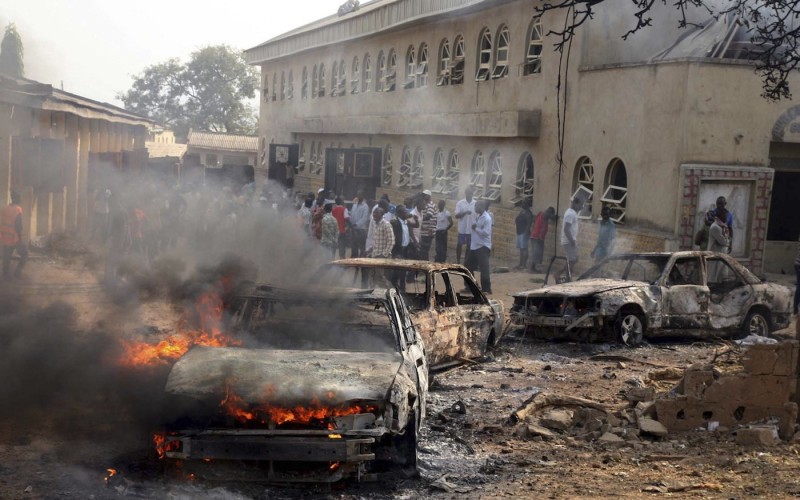
RNA - Bishop John Namaza Niyiring of Kano said that the measures include erecting barricades, using metal detectors to check people entering churches, and a special police unit “carrying out surveillance in areas where we intend to hold special functions”.
More than 100 people were killed and 135 wounded in multiple suicide bomb blasts at Kano’s central mosque on November 29.
The attack was carried out by militant Islamist group Boko Haram.
The people of Kano “are politically conscientised and will want to exercise their civic responsibilities,” the bishop said.
Bishop Niyiring said the call on Kano residents to go about their normal duties and continue to worship in the mosque by one of Nigeria’s most influential monarchs would boost morale ahead of the elections.
The emir of Kano, Muhammad Sanusi II, urged people to clean up the scene of the attack and not to be intimidated, he said.
This was not the first Boko Haram attack on a mosque, and analysts say the militant Islamists could be showing disapproval of the way Islam is being practiced.
In northern Nigeria in 2012, an attack on a Christian service in Kano left 15 people dead and many more wounded.
A 2011 Christmas bomb attack on a Catholic church just outside Nigeria’s capital, Abuja, killed 37 people and wounded 57.
“We have received cooperation from the various security services,” which has “helped to stem tide of sectarian attacks since 2012 in the state,” Bishop Niyiring said.
“The frequency of attacks in Kano is low when compared to that of Maiduguri,” the capital of Borno state in northeastern Nigeria, he said.
Officials of the Catholic Bishops’ Conference of Nigeria met with President Goodluck Jonathan earlier this year to discuss attacks on churches and the need for heightened security to avert these, he said.
“There is also the need for the church and the state to collaborate on tackling the plight” of people who have been internally displaced by the violence, Bishop Niyiring said.
“The Catholic bishops and other religious leaders in Adamawa, Yobe and Borno states are taking care” of those who have fled their homes with “federal and state governments doing little to alleviate their sufferings,” he said.
R111/108/B/